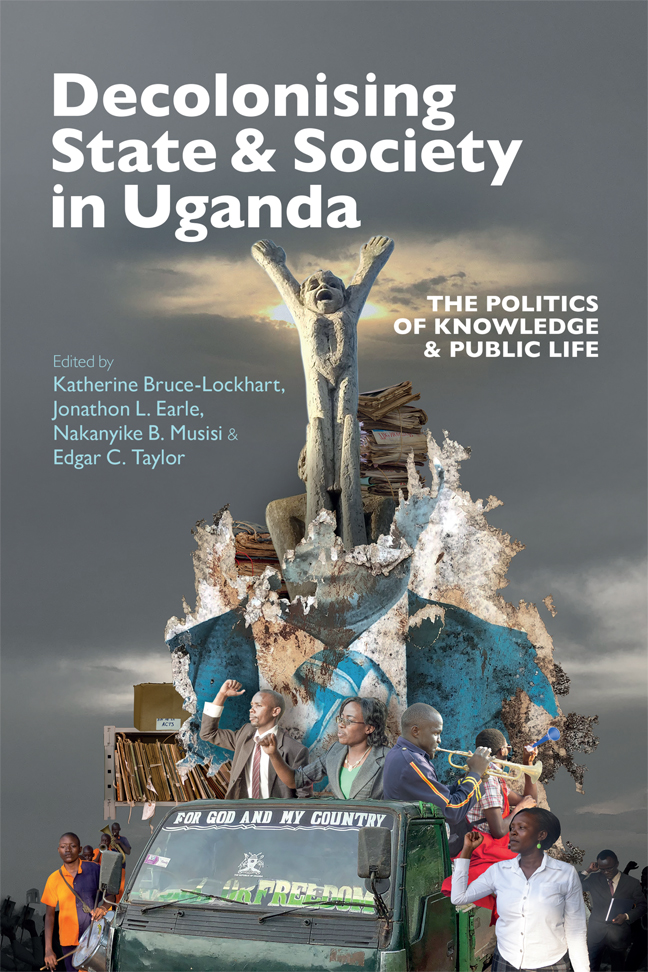3 - Spirits of Difference: Religion, Healing, and Decolonisation in Acholi
Published online by Cambridge University Press: 15 February 2024
Summary
‘I don't like prayers that go all night’, Lamunu said in frustration. It was late July of 2014 and we were gathered in her son Okot's sitting room in Gulu town, discussing a problem that no one was quite sure what to do about.
Jennifer, the niece of Lamunu's late husband, was acting manically and unpredictably, and it was not the first time she had done so. Despite living on the knife's edge of poverty, she had quit her job cleaning the house of an English businessman and a Swiss NGO worker, as well as her job cooking for an Indian family in the same compound. She stated that she refused to be employed any longer by people who were not Christian, and that there were evil spirits in that housing complex. After she called repeatedly to inform me that we needed to speak about ‘demons’ – a word she uttered in English rather than Acholi – I met with Jennifer in Okot's home.
Okot, who grew up with Jennifer and was raised in the same Roman Catholic Church that she now vocally rejected, was distraught by her appearance and her behaviour. She was gaunt and looked tense. Holding two Bibles (one printed in English and one in Acholi Luo), she had flipped through them while we sat and talked, and insisted that I read out loud from the English one. While she did not pause to interpret the text or tell us of its relevance, Jennifer did tell us that God had been sending her messages. She wanted us to be happy for her; to know that she had been delivered.
A woman she had met at Christ Church, a parish in the Anglican diocese, had urged her to set most of her religious literature on fire. The Jehovah's Witness pamphlets, the children's Bible, the devotional guides from Holy Rosary (her home congregation): they all had to go up in flames, and Jennifer had willingly lit the match. The woman from Christ Church had told her that those things had all come from dano te pii, the people who go underwater to make nice things in the service of Satan.
Now, Okot and his mother were musing over what should be done about Jennifer.
- Type
- Chapter
- Information
- Decolonising State and Society in UgandaThe Politics of Knowledge and Public Life, pp. 58 - 77Publisher: Boydell & BrewerPrint publication year: 2022

